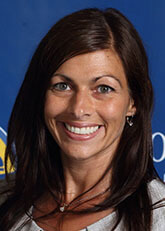Caring for the Caregiver: The RISE Program
Training Hospitals to Deliver Peer Support to Employees in Distress

Every day, health care professionals face the risk of traumatic events — such as an unexpected death, a medical error, or an unplanned transfer to the ICU. Yet few hospitals have programs to support “second victims.” Too often, these employees experience self-doubt, burnout and other problems that cause personal anguish and hinder their ability to deliver safe, compassionate care.
The Caring for the Caregiver program guides hospitals to set up peer-responder programs that deliver “psychological first aid and emotional support” to health care professionals following difficult events. Modeled on the Resilience in Stressful Events (RISE) team at The Johns Hopkins Hospital, the program prepares employees to provide skilled, nonjudgmental and confidential support to individuals and groups.
This training is offered by the Armstrong Institute in collaboration with the Maryland Patient Safety Center.
How to Bring Caring for the Caregiver: The RISE Program to Your Hospital
Step 1: RISE Implementation Training
Members of your core implementation team will participate in a one-day workshop — “Caring for the Caregiver: Implementing RISE” — where they will receive a roadmap and guidance for setting up a peer-responder program. We can bring the program to you, training anyone who will be responsible for designing your peer-responder program, overcoming barriers to implementation, and recruiting peer responders.
Step 2: Peer Responder Basic Training
Several months after the implementation workshop, have a multidisciplinary group of hospital employees take a one-day course, “Peer Support for Caregivers in Distress: RISE Peer Responder Basic Training." Participants will learn how to deliver psychological first aid and emotional support to clinicians in distress.
We recommend that you recruit volunteers across disciplines and care settings to participate in this training, which is typically delivered at your organization.
Registration
Select an upcoming workshop date below to register. Registration closes five business days before the workshop start date, unless the course fills up first.
Virtual Workshops:
In-Person Workshops:
Johns Hopkins Employee: Free
Caring for the Caregiver Partner: $200 per participant
I am neither, but am interested in learning more (click here)
Please see our Cancellation/No Show & Refund Policy. Beginning January 1, 2021, the No-Show Policy has been reinstated.
Albert Wu
Professor of Health Policy and Management and Medicine, The Johns Hopkins University
A practicing general internist who has studied the handling of medical errors for nearly 20 years, Wu coined the term “second victim” in a 2000 British Medical Journal article. He has since continued to study and write about the needs of traumatized health care workers, using these lessons to help develop the RISE program at Johns Hopkins and introduce it to other organizations.

Cheryl Connors
Quality and Innovation Coach, The Armstrong Institute for Patient Safety and Quality Improvement
Connors became aware of the second victim phenomenon in 2001, after a patient unexpectedly deteriorated on the unit where she was a nurse. Certain that peer support would have personally and professionally benefitted her and other traumatized colleagues, who struggled with the event for many years, she moved to create Johns Hopkins’ RISE program and infuse it with proven, effective approaches for stress management.

Matt Norvell
Chaplain, The Johns Hopkins Hospital
Norvell has helped develop the RISE program at Johns Hopkins since 2010. In addition to providing spiritual support to patients and families, he has always held supporting and counseling staff as a vital responsibility. He is committed to improving patient safety by helping staff members deal with the stressors they face daily.

I just want to thank you and let you know that the R.N. supported by RISE is thriving in her job like never before. In fact, she is now teaching in the simulation lab. She recovered from this event and is helping to improve patient safety in our department.
Dennis Jones, D.N.P., R.N., C.C.N.S., The Johns Hopkins Hospital
